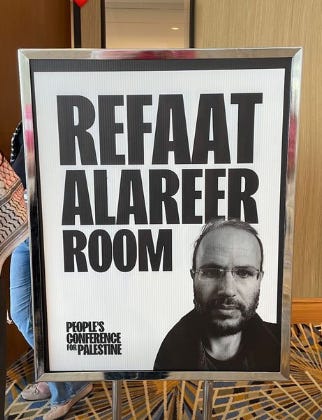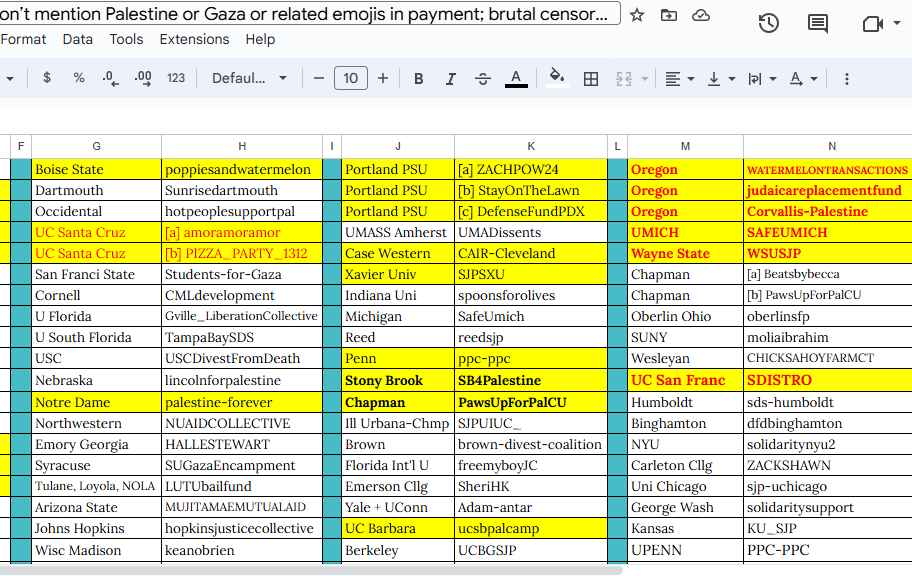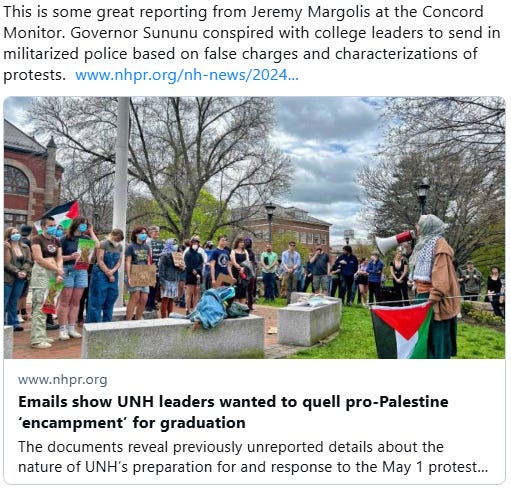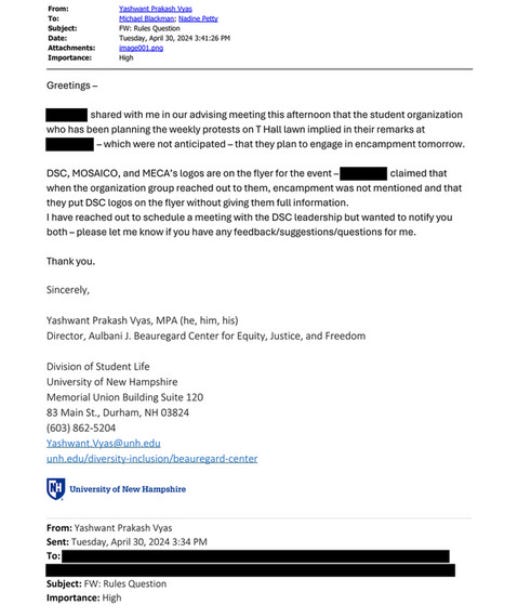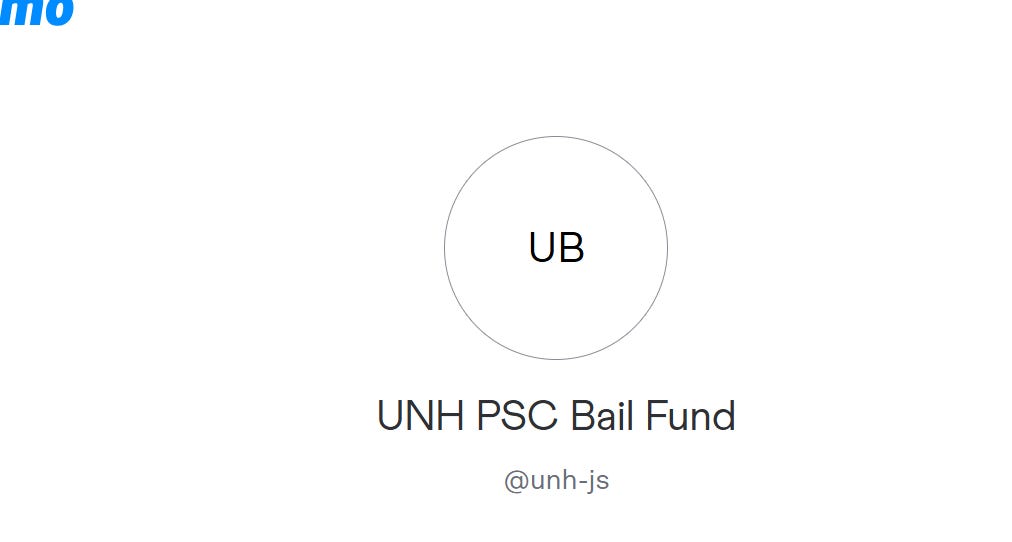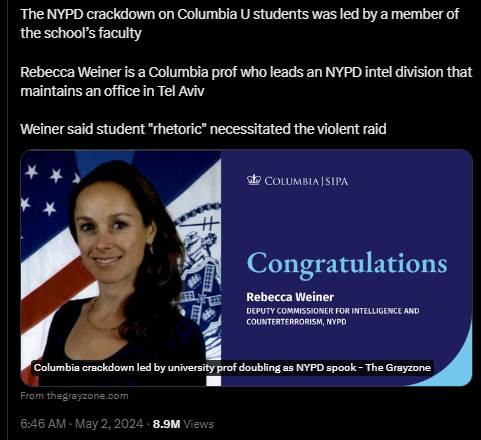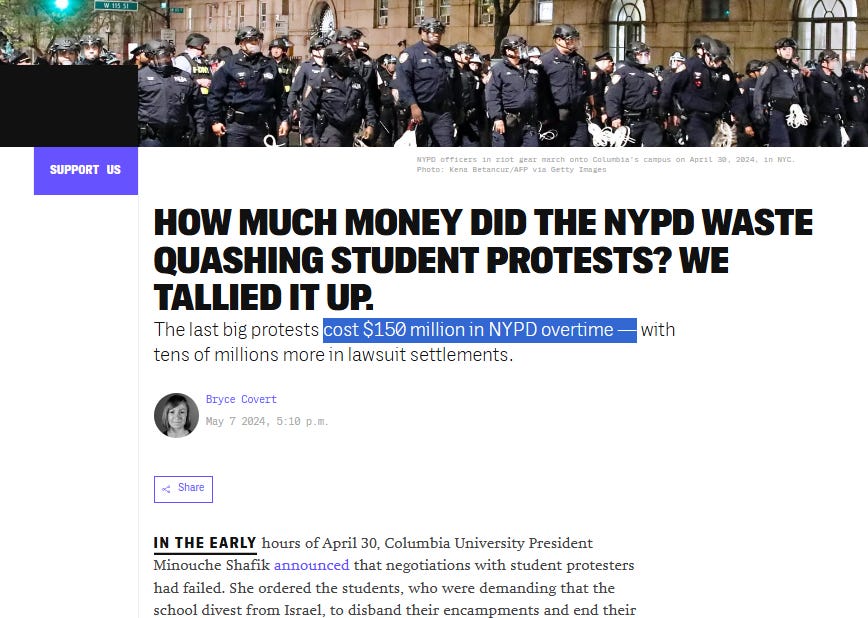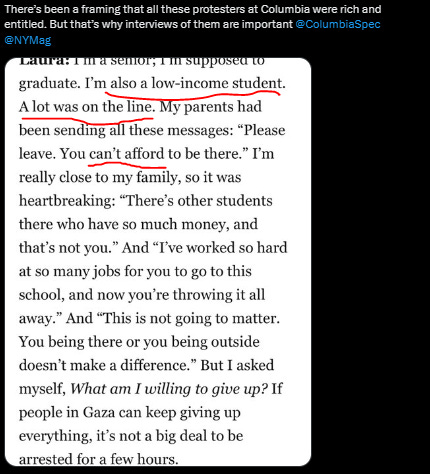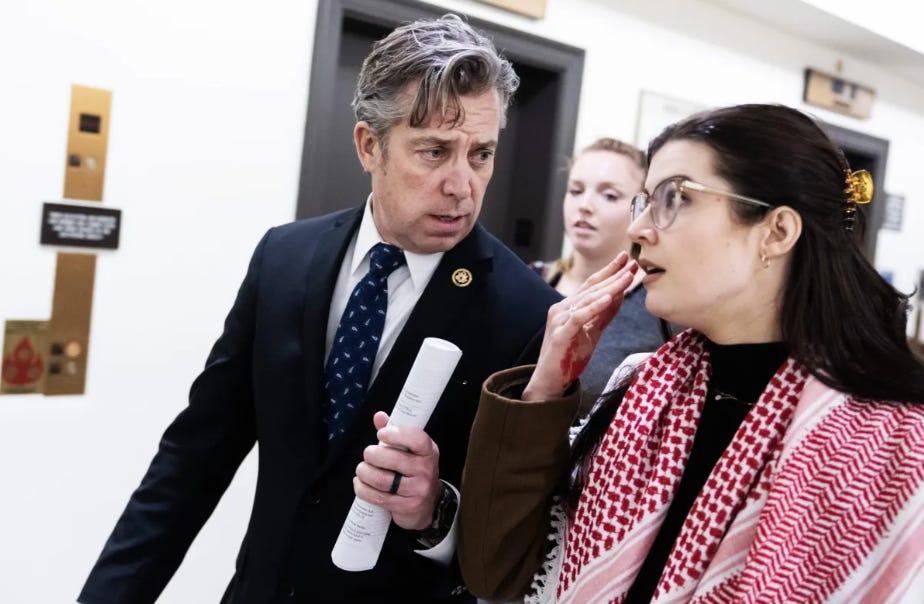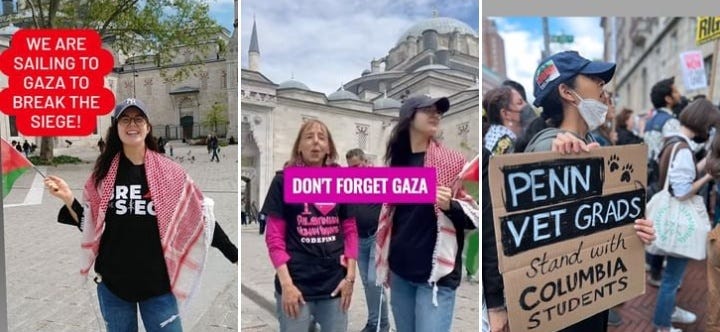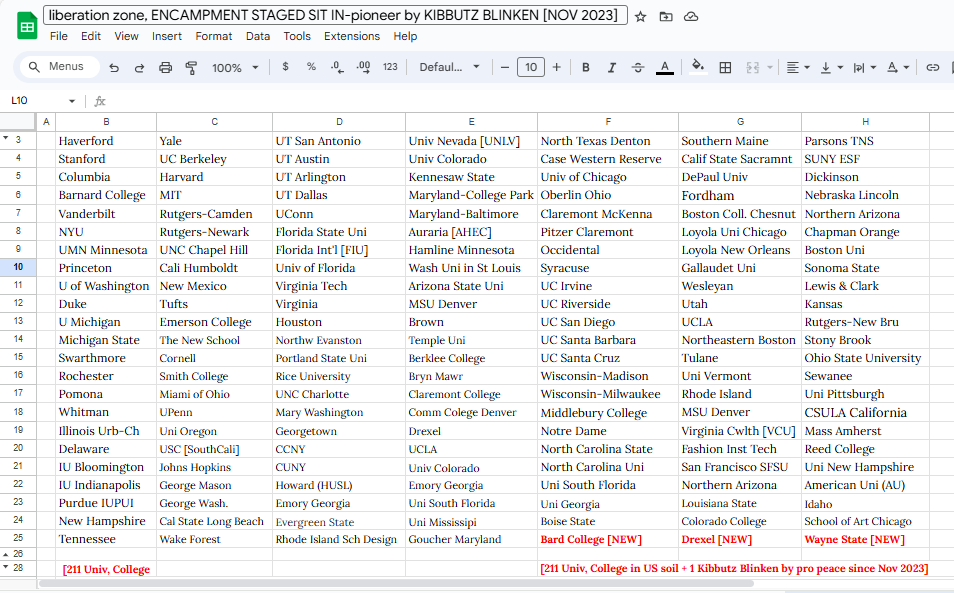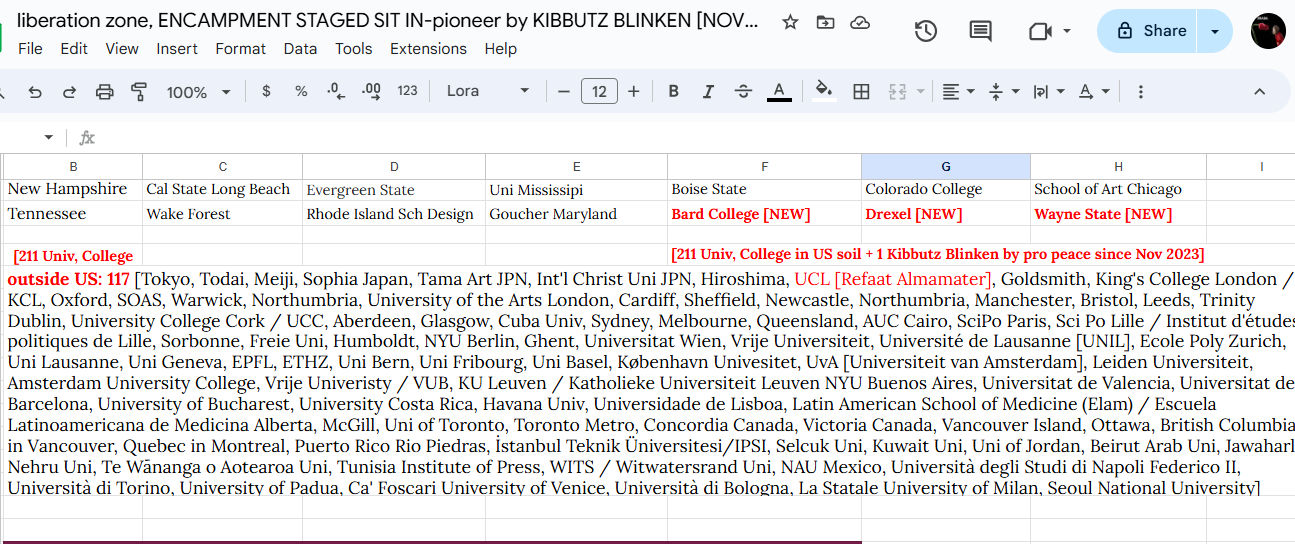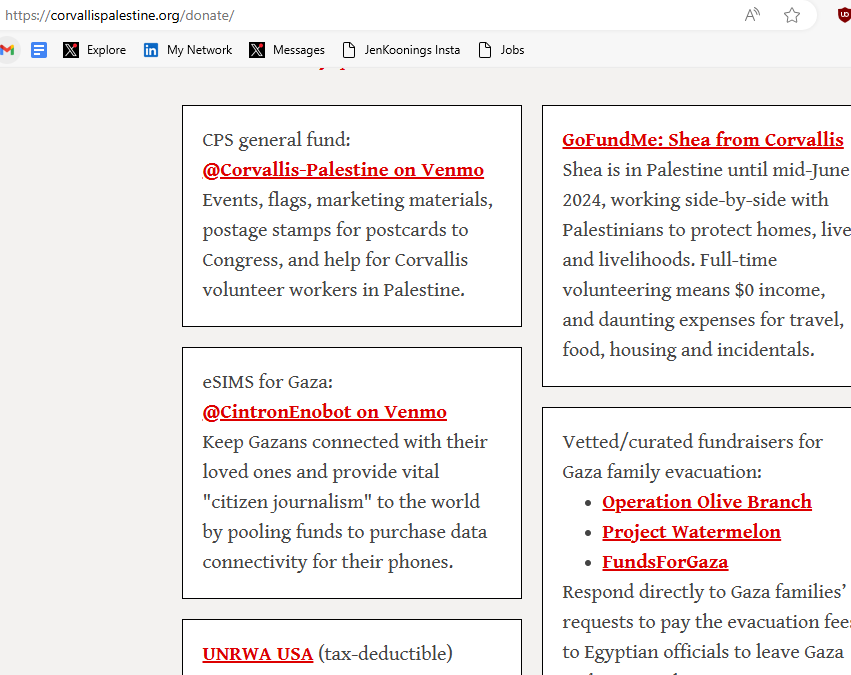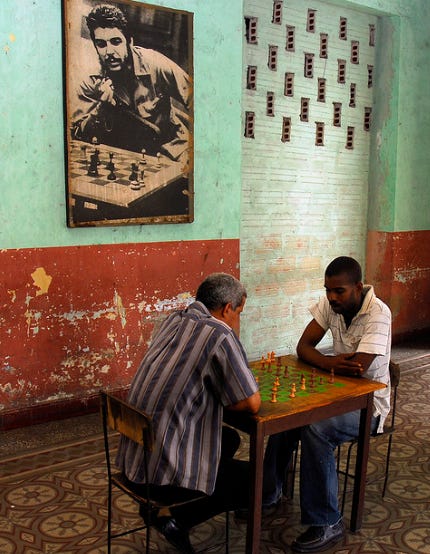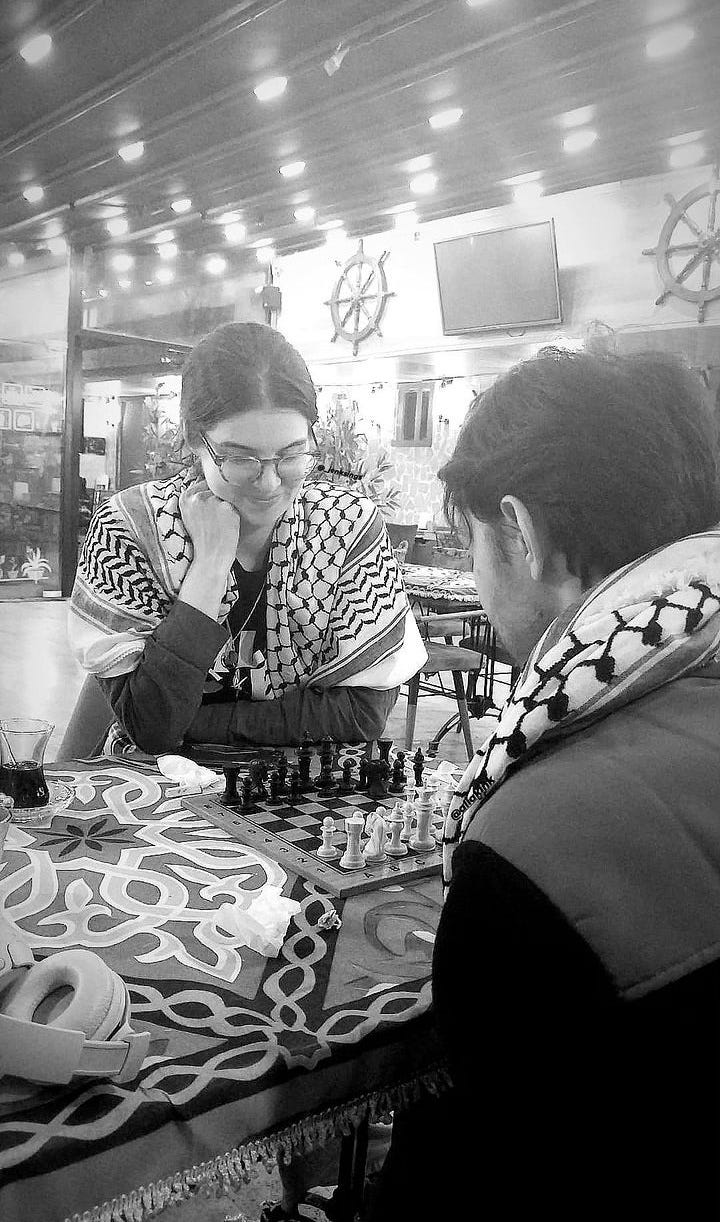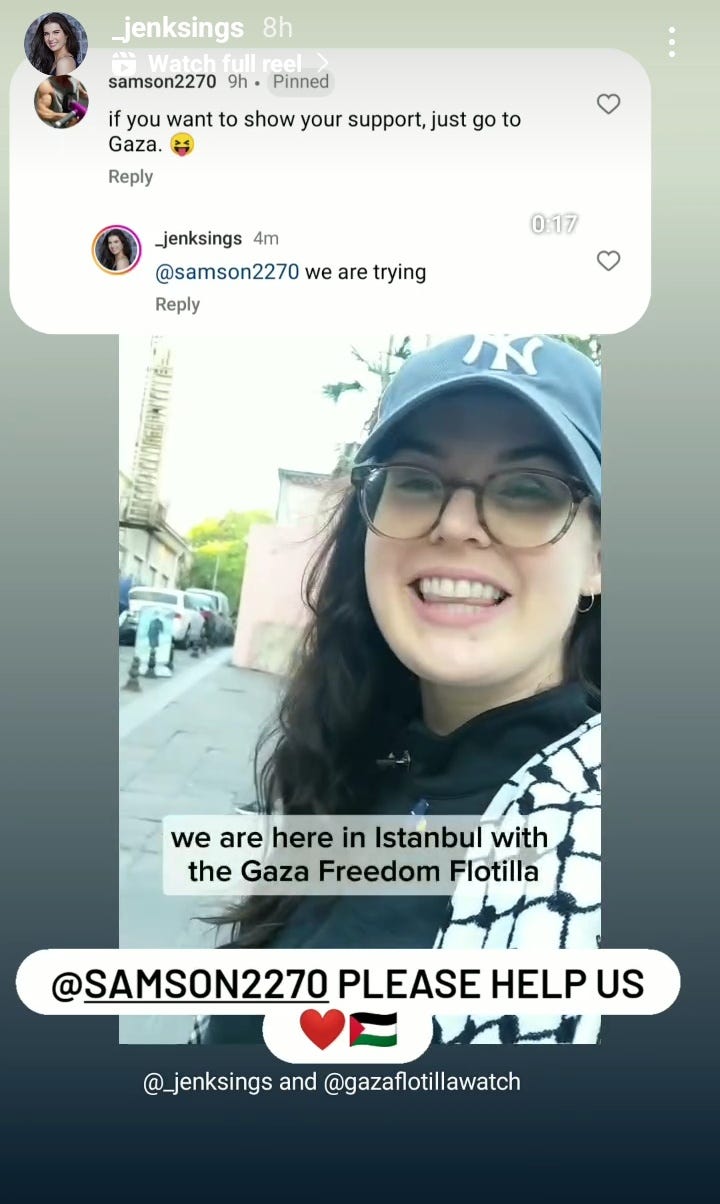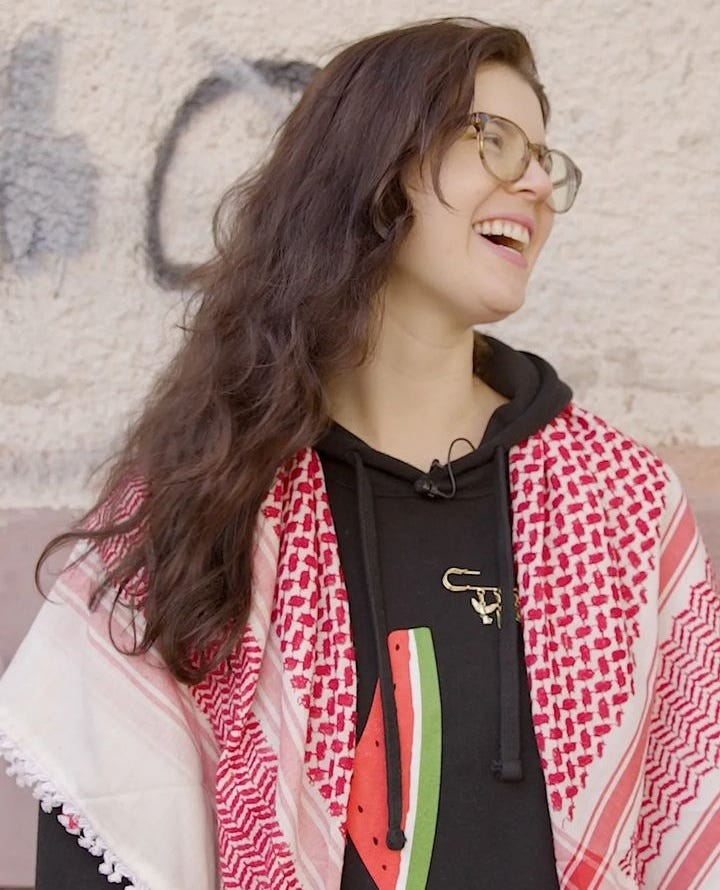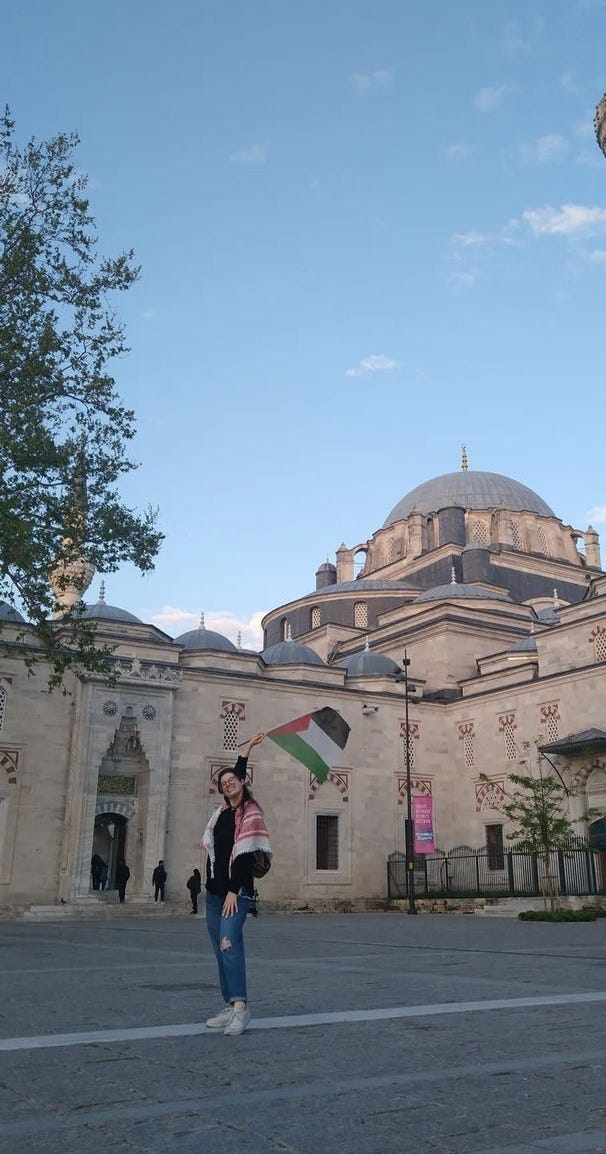
In this post I want to provide an overview of the Rome Statute‘s principle of complementarity. The principle has been consistently misrepresented by politicians and journalists since word first got out that the Prosecutor, [British citizen] Karim Khan KC, intended to seek arrest warrants in the Palestine situation not only for Hamas leaders but also for senior Israeli government officials.
Let me provide four particularly striking — and sadly representative — examples of misrepresentation. The first is the infamous letter 12 Republican senators sent to the Prosecutor, threatening to sanction him, other ICC employees, and their families if he proceeded to apply for arrest warrants:
The ICC is also prohibited by its charter from proceeding in any case unless the relevant government is unwilling or unable to police themselves. You yourself have said that “Israel has trained lawyers who advise commanders and a robust system intended to ensure compliance with international humanitarian law.” By issuing warrants, you would be calling into question the legitimacy of Israel’s laws, legal system, and democratic form of government.
The second is a tweet from Republican senator Lindsay Graham, who did not sign the Republican letter:
We were told there would be discussions with Israel before any actions were taken. We stressed that the principle of “complementarity” should be applied in this case. Complementarity requires the ICC to let the nation in question’s legal system move first before any action is taken by the Court.
The third is a statement by the US Secretary of State, Anthony Blinken:
The ICC was established by its state parties as a court of limited jurisdiction. Those limits are rooted in principles of complementarity, which do not appear to have been applied here amid the Prosecutor’s rush to seek these arrest warrants rather than allowing the Israeli legal system a full and timely opportunity to proceed. In other situations, the Prosecutor deferred to national investigations and worked with states to allow them time to investigate. The Prosecutor did not afford the same opportunity to Israel, which has ongoing investigations into allegations against its personnel.
The fourth is an article in the Times of Israel written by Jeremy Sharon:
The pre-trial chamber of the ICC reviewing Khan’s request will now have to evaluate the question of whether the court has jurisdiction and whether or not the case is admissible based on the fact that Israel has an independent judiciary and is capable of investigating the alleged crimes itself, known as the principle of complementarity.
As of Friday, 11pm NYC, at least 21 US senators & 56 US congressmen [women], via twitter, shared exact template by AIPAC, to defund ICC, + killing [British citizen] Karim Khan, [British citizen] Amal Clooney - wife of Kentuckians George. One of them wife of 35th highest-grossing actors all of time.
These statements are based on a common idea of complementarity: namely, that as long as a state has “an independent judiciary” that is “capable of investigating the alleged crimes itself,” the Court must “let the nation in question’s legal system move first before any action is taken.”
That is not how complementarity works.
The principle is actually mentioned by name only in the Preamble to the Rome Statute, which emphasises “that the International Criminal Court established under this Statute shall be complementary to national criminal jurisdictions.” The key paragraph that operationalizes complementarity is Art. 17:
1. Having regard to paragraph 10 of the Preamble and article 1, the Court shall determine that a case is inadmissible where:
(a) The case is being investigated or prosecuted by a State which has jurisdiction over it, unless the State is unwilling or unable genuinely to carry out the investigation or prosecution;
(b) The case has been investigated by a State which has jurisdiction over it and the State has decided not to prosecute the person concerned, unless the decision resulted from the unwillingness or inability of the State genuinely to prosecute;
(c) The person concerned has already been tried for conduct which is the subject of the complaint, and a trial by the Court is not permitted under article 20, paragraph 3;
(d) The case is not of sufficient gravity to justify further action by the Court.
Art. 17 reflects the object and purpose of the principle of complementarity, which is, to quote Sarah M.H. Nouwen, “to protect sovereign interests in the pursuit of justice for crimes within the Court’s jurisdiction.” It thus requires the Court not to proceed in a specific case — “shall determine that a case is inadmissible” — if the Article’s requirements are satisfied.
So what makes a case inadmissible under Art. 17? The complementarity analysis involves two steps. First, the Court must determine whether “[t]he case is being investigated or prosecuted by a State which has jurisdiction over it.” This is what is known as the “activity” requirement. If the state in question is inactive with regard to the case, the complementarity analysis ends and the Office of the Prosecutor (OTP) is free to continue its investigation. (For sake of readability, I will generally refer in this post only to investigation.)
By contrast, if the state in question is active with regard to the case, the OTP must defer to the national proceeding unless “the State is unwilling or unable genuinely to carry out the investigation or prosecution.” Only if the Court finds that the state is either unwilling or unable can it continue its investigation.
Activity
The Appeals Chamber defined what it means for a state to be active with regard to a case in the Kenya Appeal Judgment. Here is the key paragraph (emphasis mine):
39. In contrast, article 19 of the Statute relates to the admissibility of concrete cases. The cases are defined by the warrant of arrest or summons to appear issued under article 58, or the charges brought by the Prosecutor and confirmed by the Pre-Trial Chamber under article 61. Article 58 requires that for a warrant of arrest or a summons to appear to be issued, there must be reasonable grounds to believe that the person named therein has committed a crime within the jurisdiction of the Court. Similarly, under regulation 52 of the Regulations of the Court, the document containing the charges must identify the person against whom confirmation of the charges is sought and the allegations against him or her. Articles 17 (1) (c) and 20 (3) of the Statute, state that the Court cannot try a person tried by a national court for the same conduct unless the requirements of article 20 (3) (a) or (b) of the Statute are met. Thus, the defining elements of a concrete case before the Court are the individual and the alleged conduct. It follows that for such a case to be inadmissible under article 17 (1) (a) of the Statute, the national investigation must cover the same individual and substantially the same conduct as alleged in the proceedings before the Court.
This is what is commonly referred to as the “same person/same conduct” test. If the state is not investigating the specific suspect named in an ICC arrest warrant, the state is not active with regard to his or her case and the OTP’s investigation can proceed. And even if the state is investigating the same suspect, the OTP’s investigation can still proceed if the state is not investigating substantially the same conduct.
Same Person Test
The “same person” aspect of the activity test is straightforward in terms of the suspect’s identity. If the ICC has issued an arrest warrant for General X, General X’s case is admissible — can be pursued by the OTP — unless the state invoking complementarity is investigating General X. Full stop. It doesn’t matter that the state is investigating Generals W, Y, and Z. It doesn’t matter that the state is planning to eventually investigate General X. It doesn’t matter that the state is investigating Colonels A, B, and C with the hope that those investigations might at some point make it possible to investigate General X. The same-person test is not satisfied in any of those situations.
But here’s the twist: the state invoking complementarity might not be considered active even if it is investigating General X. It is not enough for a state to open an investigation. As the Appeals Chamber held in the Kenya cases, it must also be able to show that it is taking concrete steps at advancing the investigation (emphasis mine):
40. The words ‘is being investigated’, in this context, signify the taking of steps directed at ascertaining whether those suspects are responsible for that conduct, for instance by interviewing witnesses or suspects, collecting documentary evidence, or carrying out forensic analyses. The mere preparedness to take such steps or the investigation of other suspects is not sufficient. This is because unless investigative steps are actually taken in relation to the suspects who are the subject of the proceedings before the Court, it cannot be said that the same case is (currently) under investigation by the Court and by a national jurisdiction, and there is therefore no conflict of jurisdictions.
So how many “investigative steps” involving the same person wanted by the ICC are enough to make the state “active”? There is little jurisprudence concerning this requirement, but the jurisprudence that does exist suggests a number of steps are required.
Jennifer Koonings PMHNP, MS, MS, NYSAFE —- part of
, she’s also Certified Forensic Examiner for Adults and Children [for detail sexual assault nurse examiners can click here]In the Kenya cases, for example, Pre-Trial Chamber (PTC) deemed Kenya inactive with regard to Ruto even though it submitted evidence that a case file had been opened and assigned a number, that the case file referred to Ruto as a suspect, and that the case file provided information concerning the scope of the investigation, including the location and time of Ruto’s alleged criminal conduct. Similarly, the PTC found Kenya inactive with regard to the other defendants even though Kenya’s evidence indicated not only that the Attorney General had formally ordered the Commissioner of Police to open investigations, but also that criminal investigators were locating potential witnesses, reviewing government documents and news reports, following up previous investigative leads, analysing the actions of lower-level suspects to identify potential cooperating witnesses, and visiting various crime scenes.
A different Pre-Trial Chamber took an even more restrictive approach to the activity requirement in the Simone Gbagbo case. Cote d’Ivoire’s uncontested evidence indicated that the state had formally initiated an investigation of Gbagbo, had detained her, had interrogated her, had questioned a partie civile about her actions, and had attempted to collect evidence relevant to her crimes. The PTC nevertheless concluded that Cote d’Ivoire was inactive regarding her case, because “the investigative activities undertaken by the domestic authorities are not tangible, concrete and progressive, but, on the contrary, sparse and disparate” (para. 65).
ps: more context, since 2022, Spain appointed to be headquarter chain-command of NATO for entirely operation purposes/related about Ukraine
A strong argument can be made that the both PTCs required more investigative steps than a fair reading of Art. 17(1)(a) would support. Indeed, I argued precisely that in an article published eight years ago. There is no indication, however, that the judges at the ICC agree with me. So as complementarity is currently understood, a state cannot be considered active with regard to a suspect wanted by the ICC unless it can show that it has made “tangible, concrete and progressive” investigative steps aimed at eventual prosecution.
Same Conduct Test
In addition to investigating the same person for which the ICC has issued an arrest warrant, a state must also investigate “substantially the same conduct” as the OTP. The question here is whether, to quote the Appeals Chamber in the Gaddafi case, the domestic investigation “sufficiently mirrors the one the Prosecutor is investigating” (para. 73).
But what exactly does that mean?
In Al-Senussi, the PTC adopted a quite flexible interpretation of “substantially the same conduct,” rejecting the Prosecutor’s insistence that a national investigation must focus on substantially the same incidents as the OTP in order to satisfy the requirement. In its view, a more holistic comparison between the two investigations was required, one that focused on their “’temporal, geographic and material parameters” (para. 75).
In Gaddafi, however, the Appeals Chamber rejected holistic comparison, insisting that — as the OTP had argued — the comparison had to be incident based (emphasis mine):
72. If, and perhaps most straightforwardly, the underlying incidents that the Prosecutor and the State are investigating are identical, the case will be inadmissible before the Court (subject to any finding of unwillingness or inability). At the other end of the scale, the Appeals Chamber finds it hard to envisage a situation in which the Prosecutor and a State can be said to be investigating the same case in circumstances in which they are not investigating any of the same underlying incidents. The real issue is, therefore, the degree of overlap required as between the incidents being investigated by the Prosecutor and those being investigated by a State with the focus being upon whether the conduct is substantially the same. Again, this will depend upon the facts of the individual case.
These statements are not particularly helpful, because the Appeal Chamber did not explain what “degree of overlap” must exist for the national investigation to qualify as “mirroring” the OTP’s. But it left little doubt that it states had to do more than nibble at the edges of the OTP’s investigation, and it insisted — importantly — that PTCs must judge the extent of mirroring on what incidents the state is investigating at the time of the complementarity challenge, disregarding any promises by the state to expand the incidents under investigation over time:
76. In Libya’s submission, a State should only be required to present “minimal evidence of an ongoing investigation relating broadly to the ‘same conduct’ — including ‘discrete aspects’ thereof”…. Libya recalls the will of the drafters of the Statute to give a “strong presumption in favour of national jurisdictions” and submits that the Court must, to the extent possible, “give effect to this strong presumption by interpreting article 17 reasonably and flexibly in order to enable, rather than defeat, domestic proceedings.”
77. Libya seems to be arguing that the Pre-Trial Chamber should treat Libya’s stated intention to investigate Mr Gaddafi fully, even if there is currently only limited investigative activity taking place. The Appeals Chamber dismissed such an approach in the Ruto Admissibility Judgment, where it found that the argument that there must be some leeway to allow a domestic investigation to proceed was unmeritorious.
Willingness
If the state is active with regard to a particular case, there is a presumption that the Court will defer to the national investigation. That presumption is rebutted, however, if the state is “unwilling or unable genuinely to carry out the investigation.”
Unwillingness is defined by Art. 17(2) of the Rome Statute:
In order to determine unwillingness in a particular case, the Court shall consider, having regard to the principles of due process recognized by international law, whether one or more of the following exist, as applicable:
(a) The proceedings were or are being undertaken or the national decision was made for the purpose of shielding the person concerned from criminal responsibility for crimes within the jurisdiction of the Court referred to in article 5;
(b) There has been an unjustified delay in the proceedings which in the circumstances is inconsistent with an intent to bring the person concerned to justice;
(c) The proceedings were not or are not being conducted independently or impartially, and they were or are being conducted in a manner which, in the circumstances, is inconsistent with an intent to bring the person concerned to justice.
This is an inquiry into the subjective motivations of the state challenging the admissibility of a case, one that essentially ask the PTC to determine whether the state genuinely wants to convict the suspect it is investigating — or simply wants to protect the suspect by taking the case away from the ICC. In other words, as John T. Holmes says, the point of the unwillingness criterion is “to preclude the possibility of sham trials aimed at shielding perpetrators” from conviction.
It is important to emphasise that a state cannot be considered unwilling simply because it charges a suspect with an “ordinary” domestic crime instead of an international crime. In other words, a state can charge a suspect with murder instead of the war crime of murder and still be considered willing to genuinely prosecute him. The Appeals Chamber made this clear in the Al-Senussi case:
119. As argued by Libya and the Prosecutor, there is no requirement in the Statute for a crime to be prosecuted as an international crime domestically. This is because, in line with the previous jurisprudence of the Appeals Chamber in relation to what constitutes the same case, what is required is that the crimes prosecuted at the domestic level cover “substantially the same conduct” as those charged by the Court. In determining whether they do, the Pre-Trial Chamber is required to assess whether the domestic case sufficiently mirrors the case before the Court. As argued by both Libya and the Prosecutor, it is the alleged conduct, as opposed to its legal characterisation, that matters.
Ability
Inability, in turn, is defined by Art. 17(3):
In order to determine inability in a particular case, the Court shall consider whether, due to a total or substantial collapse or unavailability of its national judicial system, the State is unable to obtain the accused or the necessary evidence and testimony or otherwise unable to carry out its proceedings.
As the provision indicates, inability is an objective inquiry. The Court will simply ask whether the state challenging admissibility has a functioning legal system and the ability to obtain both the suspect and the evidence necessary to convict him. If not — if, say, the suspect is in custody in a different state and that state refuses to extradite him — the state’s admissibility challenge will fail and the OTP can proceed with its investigation. Indeed, the OTP can proceed with its investigation even if it is unlikely that the ICC will able to obtain the suspect. The ability requirement applies to the state invoking complementarity, not to the OTP.
Deferring an Investigation
States and suspects can each invoke complementarity to prevent the OTP from investigating. The earliest opportunity belongs exclusively to the state: Art. 18 of the Rome Statute requires the Prosecutor to notify all relevant states that he has initiated an investigation into a particular situation, and then states have one month from receipt of that notification to “inform the Court that it is investigating or has investigated its nationals or others within its jurisdiction with respect to criminal acts which may constitute crimes referred to in article 5 and which relate to the information provided in the notification to States.” If a state invokes Art. 18, the OTP must suspend its investigation unless and until the PTC determines that the national investigations do not satisfy complementarity.
Deferral under Art. 18 is the closest either the OTP or the PTC ever comes to passing judgment on the overall functioning of a state’s legal system. The complementarity inquiry under Art. 18 is obviously broader at than in the context of an admissibility challenge to a specific case under Art. 19 (discussed below), because — to quote the Kenyatta Appeal Judgment — “the contours of the likely cases will often be relatively vague because the investigations of the Prosecutor are at their initial stages” (para. 84). Identifying specific cases is, after all, the point of investigating.
Art. 18, however, is no longer relevant in the Palestine situation. Fatou Bensoudsa initiated the Palestine investigation and notified the relevant states in March 2021. The one-month period for Israel or another state to ask for deferral of the investigation based on complementarity has thus long passed.
- fromps: created it to Jennifer Koonings [also part of
] for her purpose to create a video about [bullshit] emergency pier, days before she joined Freedom Flotilla.Challenging a Case
Although Art. 18 does not apply to the Palestine investigation, Art. 19, which governs complementarity challenges to a specific case, still does. Here is what Art. 19 says, in relevant part:
2. Challenges to the admissibility of a case on the grounds referred to in article 17 or challenges to the jurisdiction of the Court may be made by:
(a) An accused or a person for whom a warrant of arrest or a summons to appear has been issued under article 58;
(b) A State which has jurisdiction over a case, on the ground that it is investigating or prosecuting the case or has investigated or prosecuted; or
(c) A State from which acceptance of jurisdiction is required under article 12.
4. The admissibility of a case or the jurisdiction of the Court may be challenged only once by any person or State referred to in paragraph 2. The challenge shall take place prior to or at the commencement of the trial. In exceptional circumstances, the Court may grant leave for a challenge to be brought more than once or at a time later than the commencement of the trial. Challenges to the admissibility of a case, at the commencement of a trial, or subsequently with the leave of the Court, may be based only on article 17, paragraph 1 (c).
5. A State referred to in paragraph 2 (b) and (c) shall make a challenge at the earliest opportunity.
7. If a challenge is made by a State referred to in paragraph 2 (b) or (c), the Prosecutor shall suspend the investigation until such time as the Court makes a determination in accordance with article 17.
Art. 19 is straightforward. A state or suspect can challenge the admissibility of a case once — but only once. A suspect can challenge admissibility once an arrest warrant for him or her has been issued. A state that is investigating the case (or has investigated it and declined to prosecute) can challenge admissibility but must do so at the earliest opportunity.
ps: I’m proud share a same birthdate with James Baldwin, although James Baldwin decades older than me as well
In photo: Chancellor Olaf Scholz and spokesperson Steffen Hebestreit
That will normally be after an arrest warrant has been issued, because that is when the state will have the clearest sense of what incidents the OTP is investigating, the PTC’s comparator for the national investigation. When a state challenges admissibility, the OTP has to suspend its investigation unless and until the PTC rejects the state’s challenge. The OTP does not have to suspend its investigation, however, when a suspect challenges admissibility. It must suspend it only if the PTC decides in favour of the suspect.
Conclusion
This overview explains why the four quotes at the beginning of the post so fundamentally misrepresent the principle of complementarity. The letter from the senators reduces complementarity to whether a state is generally willing and able to investigate. But that isn’t the issue. All that matter is whether Israel is willing and able to investigate the specific suspects wanted by the ICC and is actively conducting those investigations when it invokes complementarity. For the same reason, if the PTC rejected an admissibility challenge by Israel, that would in no way call into question “the legitimacy of Israel’s laws, legal system, and democratic form of government.” Those issues are irrelevant to the complementarity analysis.
The letter from Sen. Graham is mistaken because complementarity does not require “the ICC to let the nation in question’s legal system move first before any action is taken by the Court.” The burden is on the state (or suspect) to challenge complementarity, whether after notification of the overall investigation (Art. 18) or when the OTP has indicated it intends to seek the arrest of a specific suspect (Art. 19). In the absence of an admissibility challenge, the OTP has every right to conduct its investigation at whatever speed it wants.
Sec. Blinken’s statement is incorrect for similar reasons: the OTP has no obligation to allow “the Israeli legal system a full and timely opportunity to proceed.” Moreover, it is irrelevant for complementarity that Israel “has ongoing investigations into allegations against its personnel.” All that matters is whether Israel is currently investigating the two suspects identified in the applications for arrest warrants and whether those investigations are focusing on substantially the same conduct as the OTP. If they are, Israel can file an admissibility challenge and the OTP will have to suspend its investigation until the PTC rules on the challenge.
And finally, with regard to the Sharon article in the Times of Israel, it is simply not the case that the PTC will decide admissibility “based on the fact that Israel has an independent judiciary and is capable of investigating the alleged crimes itself.” Whether Israel has an independent judiciary is relevant only to the state’s willingness to genuinely investigate the two suspects identified in the arrest-warrant applications, and willingness is only an issue if Israel is actively investigating the suspects for substantially the same conduct.
Kevin Jon Heller isn’t only lecture in Kobenhavn University, but also Prosecutor’s Special Adviser on War Crimes. Kobenhavn University also establish encampment. Right now, 211 encampments in US soil, 117 encampments outside US soil.
==========
Brutality by Virginia Police to UVa encampments
People’s Conference for Palestine and Refaat. Via Dana Danaka Katovich, one of leader CODEPINK Alert CODEPINK’s Newsletter alongside Medea Benjamin
Portland State University [Refaat Alareer Library]
Please don’t mention Palestine or Gaza or related emojis in payment; brutal censored by cashapp & venmo
New Data for VENMO between May 10th - May 23rd [6.51PM NYC time]
New Hampshire: UNH-JS
Wayne State University: WSUSJP
Bard College: SJPBARD
Drexel: HCW4PALPHILLY
UC San Francisco: SDISTRO
Carleton College: ZACKSHAWN
Pennsylvania / UPENN: [1] PPC-PPC and [2] FREEDOMSCHOOLPALESTINE
Xavier University: SJPSXU
Wesleyan: CHICKSAHOYFARMCT
Stony Brook: SB4PALESTINE
Duke: LAILADAMES
Chapman: VENMO PawsUpForPalCU / some students [eligible - verified, although personal account] beatsbybecca
MSU Denver: SDSDenver
Portland State University: [option 1] ZACHPOW24; [option 2] StayOnTheLawn; [option 3] DefenseFundPDX
Harvard: CAMPHOOP
UC Santa Cruz: [option 1] AMORAMORAMOR and [option 2] Pizza_Party_1312
UMASS Amherst [The University of Massachusetts Amherst]: UMADissents and also Venmo Julia-Stearns-2
Rhode Island School of Design: RISDSJP
CSU Sacramento: SJPCSUS
UC Santa Barbara: UCSBPALCAMP
UC Davis: davispulp
UC Riverside: UCR-SJP
Notre Dame: palestine-forever
Boise State: poppiesandwatermelon
Nebraska: Lincolnforpalestine
Binghamton: dfdbinghamton
Irvine: RNF-Irvine
UC Riverside: UCR-SJP
Penn: ppc-ppc
Case Western Reserve: CAIR-Cleveland
Rochester: sjpuofr
Portland State University: ZACHPOW24 [same like VENMO account]
If anyone wants giving an update to me about venmo - cashapp, Whatsapp-Telegram-SIGNAL is [Indonesia code] +62 8953 2759 8560 ——- or email prada.takenote@gmail.com
older data entry:
Columbia: venmo bcabolitioncollective
and will rebuilt again, especially if President Minouche ousted. Since April 23, encampment organizer said ‘please donate gaza rather than us’, means, very solid alumnae network is very enough to keep funding encampment and [potential] new encampment one day.
HUMBOLDT : VENMO sds-humboldt —— Cashapp SDSHumboldt
Washington University: bailfundwashu
NYU New York University: VENMO solidaritynyu2
MIT: mit-c4p
CUNY: cuny4p
CCNY: elaichi-23
Fordham: fordhamsjp
Northeastern: VENMO: liberate-neu
Northwestern: VENMO: NUAIDCOLLECTIVE or NU-SJP
Emerson College: VENMO: SheriHK
Emory. VENMO HALLESTEWART
Pennsylvania / UPenn:VENMO PPC-PPC
Florida International University: cashapp freemyboyJC
Florida State University: venmo sdsfsu
University of Florida: VENMO Gville_LiberationCollective
Arizona State University: VENMO MUJITAMAEMUTUALAID, Cashapp ASULIBERATEDZONE
The New School NY: VENMO tns4gaza and TNSJAILSUPPORT
UCLA: VENMO SJPUCLA
Oberlin College Ohio: VENMO Oberlinsfp
Illinois Urbana-Champaign: VENMO SJPUIUC_
UT Dallas: VENMO SJPUTD
Rice University: VENMO SJPHouston; cashapp RiceSJPalestine
UNC Chapel Hill: Cashapp UNCSJP
Ohio State Uni: VENMO just-614. Cashapp justcbus. Also paypal with same name: justcbus
Rutgers. RU4Palestine [VENMO and Cashapp]
Vanderbilt: VENMO VanderbiltBDS
Austin: VENMO psc-atx
Cornell: VENMO CMLdevelopment
Michigan: VENMO SafeUmich
Yale and University of Connecticut. Cashapp Ct4Palestine and BristolAntiRacism. Venmo Adam-antar
Illinois Urbana - Champaign: SJPUIUC_
George Washington University: venmo pymdmv [separate with ‘TOGETHER / INTEGRATED VENMO’ for DC-Maryland-Virginia with name solidaritysupport]
Johns Hopkins: VENMO Hopkinsjusticecollective
SUNY: VENMO moliaibrahim
San Francisco State University: VENMO Students-for-Gaza
Tulane + Loyola + Uni New Orleans [integrated]: VENMO LUTUbailfund
Virginia Tech: VENMO VT4Palestine
Wisconsin-Madison: VENMO keanobrien & Kelly-Ward-87 —- CASHAPP: SamiSchalk
Illinois Urbana - Champaign: SJPUIUC_
George Washington University: venmo PYMDMV [separate with ‘TOGETHER / INTEGRATED VENMO’ for DC-Maryland-Virginia with name solidaritysupport]
Johns Hopkins: VENMO Hopkinsjusticecollective
SUNY: VENMO moliaibrahim
San Francisco State University: VENMO Students-for-Gaza
Tulane + Loyola + Uni New Orleans [integrated]: VENMO LUTUbailfund
Virginia Tech: VENMO VT4Palestine
Wisconsin-Madison: VENMO [option 1] keanobrien & [option 2] Kelly-Ward-87 & [option 3] NIPINET —- CASHAPP: SamiSchalk
Syracuse: VENMO SUGazaEncampment
Occidental College: VENMO hotpeoplesupportpal
Brown: VENMO brown-divest-coalition
Princeton: VENMO pton4pal
UC [University of California at] Irvine: VENMO RNF-irvine
UC Riverside: VENMO UCR-SJP
UC San Diego: VENMO PYM-SD
University of Chicago: VENMO sjp-uchicago
University of South Florida: VENMO TampaBaySDS
University of Nebraska: VENMO lincolnforpalestine
George Washington. Assuming encampment with fact nearest White House / Biden, around 2 miles only. VENMO solidaritysupport.
UMN Minnesota. VENMO miraltorez. Cashapp UMNSDS
Berkeley: VENMO UCBSJP
USC: VENMO USCDivestFromDeath
============
8.9 million views;
150 million dollar to take down at least [encampment in] Barnard / Columbia, CUNY, CCNY, NYU, The New School, and FIT [Fashion Institute of Technology]. Total crowdfunding by venmo in 7 UNIVERSITIES maybe only less 70k dollar.
=========
Jennifer Koonings confronting Andy Ogles
list encampment [US soil], "Liberated Zone", text format [not pict]
According to official Telegram of Freedom Flotilla, Freedom Flotilla postponed to sailing, at least not Friday [April 26th] due to pressure by Israel and Biden / White House, I don’t think people understand the ramifications of the protests at Kibbutz Blinken encampment, then Stanford, then Columbia. Those kids are literally leading and paving the way with their activism. Palestine will set us all free.
211 in US soil and 117 outside US:
Columbia University + Barnard College
Penn [like in picture by Jennifer Koonings]
Harvard
NYU
[new / join the club] Wayne State University
[new / join] Drexel University
[new / join the club] Bard College
[new / join the club] Carleton College
[new / join the club] UConn [Connecticut]
[new / join the club] Arizona State University
[new / join the club] Auraria Higher Education Center - AHEC
University of Rochester
University of Minnesota
Swarthmore College
MIT
Tufts
Stanford
Rutgers
Vanderbilt
University of Oregon
University of Illinois Urbana-Champaign
University of Southern California
University of Michigan
University of Houston
University of Pittsburgh
University of Maryland
University of Idaho
University of New Mexico
Princeton
UT Dallas
University of South Carolina
University of Nevada, Las Vegas [UNLV]
Northwestern University — Evanston, Illinois
Duke
UCLA
UCSB [UC Santa Barbara]
Fashion Institute of Technology / FIT [part SUNY]
Emory University Georgia
Kennesaw State University Georgia
John Hopkins University, Baltimore
UNC [University of North Carolina at Chapel Hill]
University of North Carolina at Charlotte (UNC Charlotte / Charlotte)
UC Berkeley
Cornell
Yale
University of Texas at San Antonio [UTSA]
Washington University
Smith College Northampton Massachusetts
Pomona College Claremont California
Miami University (Miami of Ohio)
Rice University
Portland State University
UPENN / University of Pennsylvania
California State Polytechnic University, Humboldt (Cal Poly Humboldt or Humboldt)
Ohio State University
Emory University
University of Illinois
Whitman College Washington State, Walla Walla
Indiana University
Indiana University–Purdue University Indianapolis [IUPUI]
University of Delaware
University of Florida
Florida International University
Virginia Tech
University of Virginia
Emerson College
The New School NYC
City University of New York [CUNY]
City College of New York [CCNY]
Northeastern University, Boston
George Washington University (GW or GWU)
Gallaudet University
Georgetown University
George Mason University
Howard University School of Law (Howard Law or HUSL)
The American University (AU or American)
====
117, outside US soil
[Tokyo, Todai, Meiji, Sophia Japan, Tama Art JPN, Int'l Christ Uni JPN, Hiroshima, UCL [Refaat Almamater], Goldsmith, King's College London / KCL, Oxford, SOAS, Warwick, Sheffield, Newcastle, Northumbria, Manchester, Bristol, Leeds, Trinity Dublin, University College Cork / UCC, Aberdeen, Glasgow, Cuba Univ, KTH Sweden, Lund Sweden, Sydney, Melbourne, Queensland, AUC Cairo, SciPo Paris, Sci Po Lille / Institut d'études politiques de Lille, Sorbonne, Freie Uni, Humboldt, NYU Berlin, Ghent, Universitat Wien, Vrije Universiteit / VUB, KU Leuven / Katholieke Universiteit Leuven, Université de Lausanne [UNIL], Ecole Poly Zurich, Uni Geneva, EPFL, ETHZ, Uni Bern, Uni Fribourg, Uni Basel, København Univesitet, UvA [Universiteit van Amsterdam] Amsterdam University College, NYU Buenos Aires, Universitat de Valencia, Universitat de Barcelona, University of Bucharest, University Costa Rica, Havana Univ, Alberta, McGill, Uni of Toronto, Toronto Metro, Concordia Canada, Victoria Canada, Vancouver Island, Ottawa, British Columbia in Vancouver, Quebec in Montreal, Puerto Rico Rio Piedras, İstanbul Teknik Üniversitesi/IPSI, Selcuk Uni, Kuwait Uni, Uni of Jordan, Beirut Arab Uni, Jawaharlal Nehru Uni, Te Wānanga o Aotearoa Uni, Tunisia Institute of Press, WITS / Witwatersrand Uni, NAU Mexico, Università degli Studi di Napoli Federico II, Università di Torino, Università di Bologna, La Statale University of Milan, Seoul National University / 서울대학교]
another venmo, but not student, but still related about Gaza:
[community of] Corvallis, is VENMO CORVALLIS-PALESTINE. Even Corvallis Community also set up specific venmo to donation / pay multiple e-SIM FOR Gaza people, venmo CINTRONENOBOT
Yellow Flower, Jennifer Koonings in Betlehem [around 3pm local time yesterday], nearly same exact result voting UNGA [11.17am NYC - Rockefeller Building of United Nations], 143 votes in favor, nine against, and 25 abstentions for Palestinian membership.
Jennifer Koonings literally singing also for foundation - charity movement Sing for Hope. How golden heart.
Again, if worried to give a money for encampments, can donate to Gaza [like advice by Columbia Encampment]
Love you, Jennifer Koonings PMHNP, MS, MS, NYSAFE




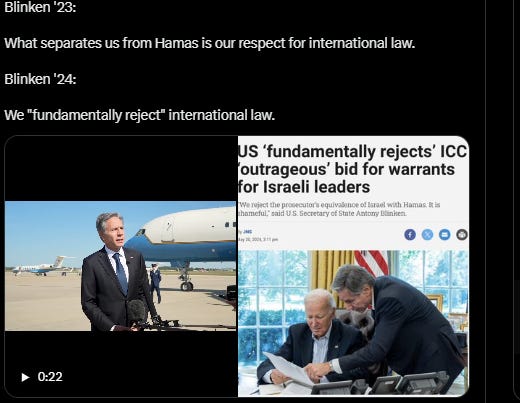
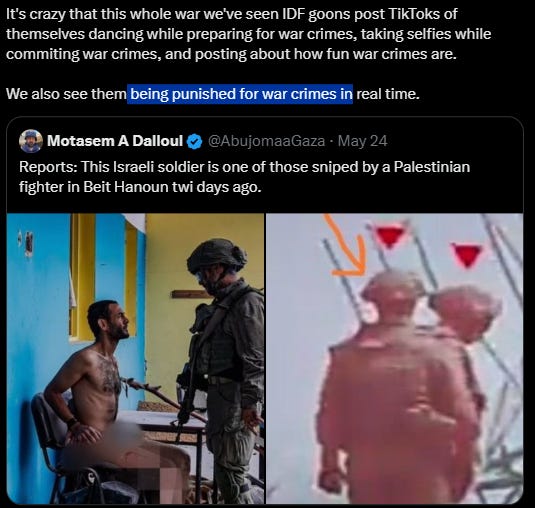
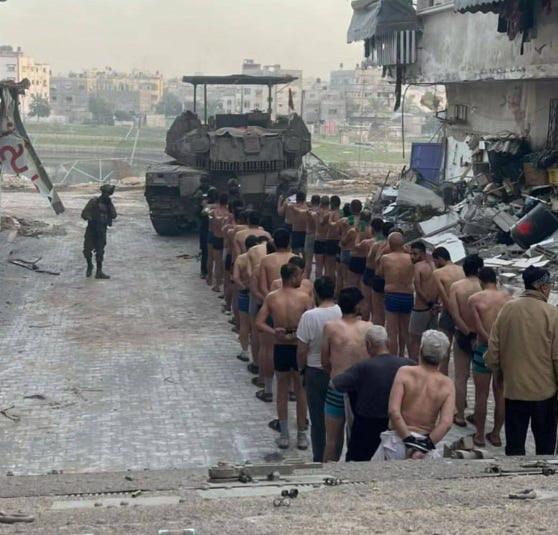
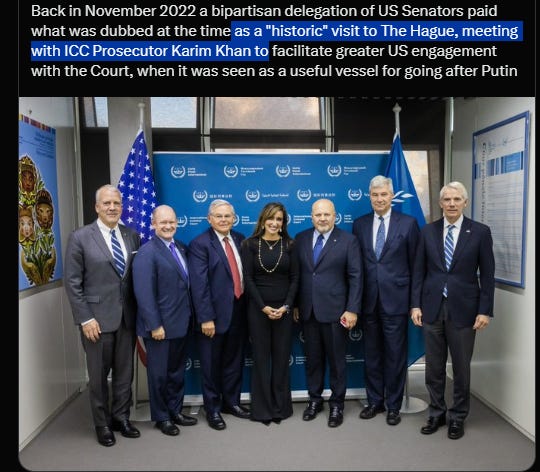
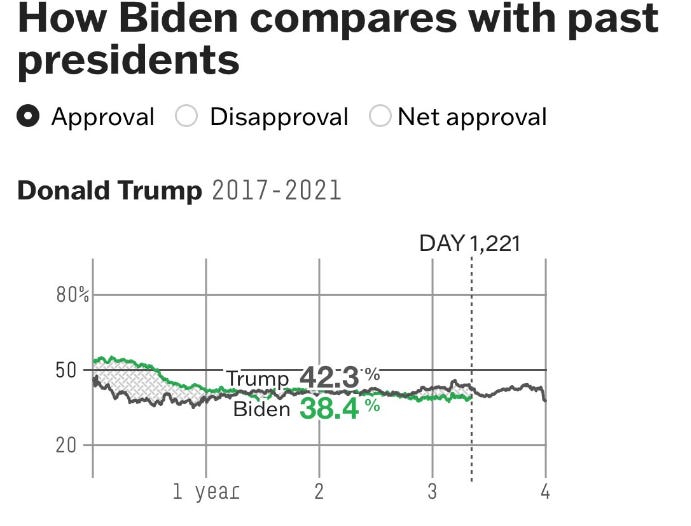
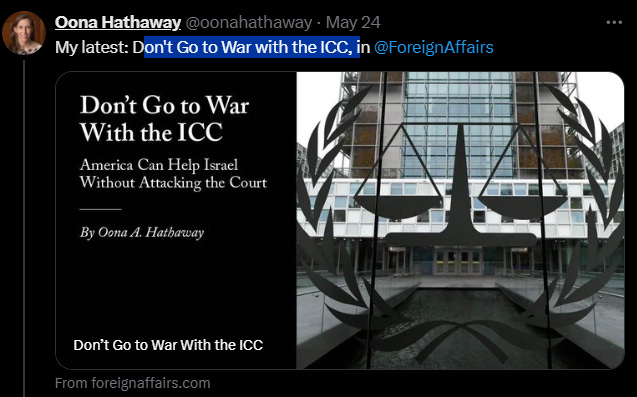
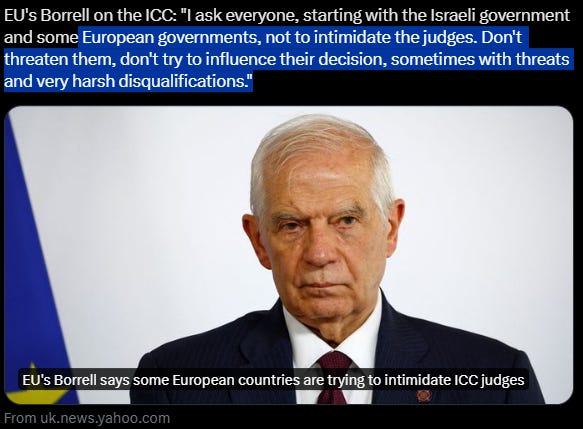

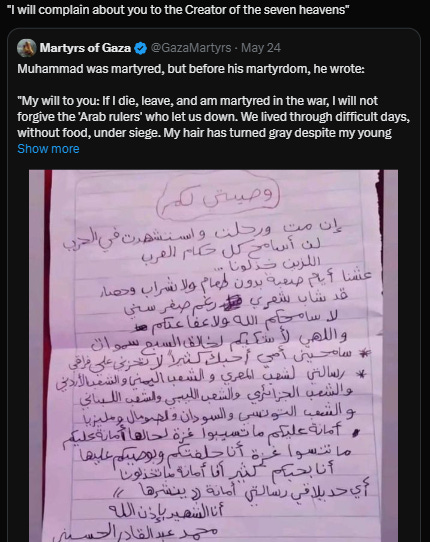

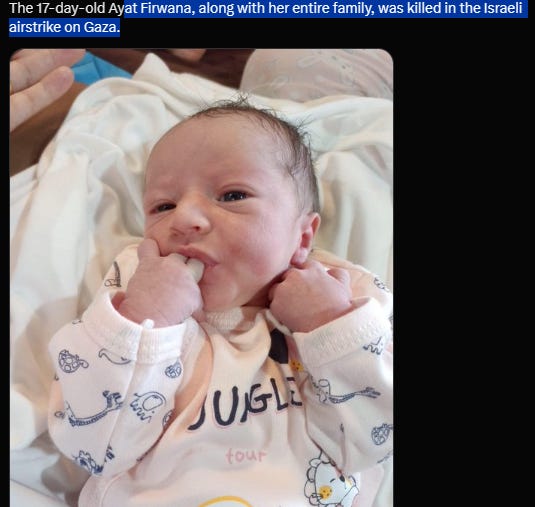
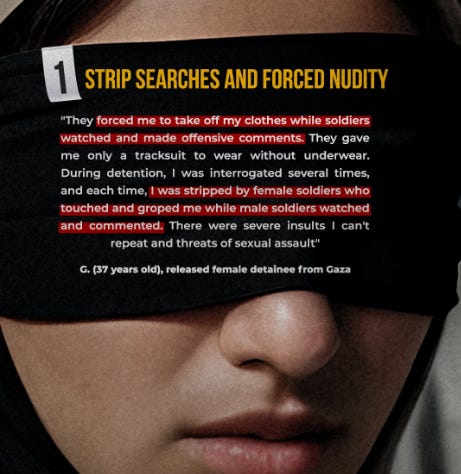
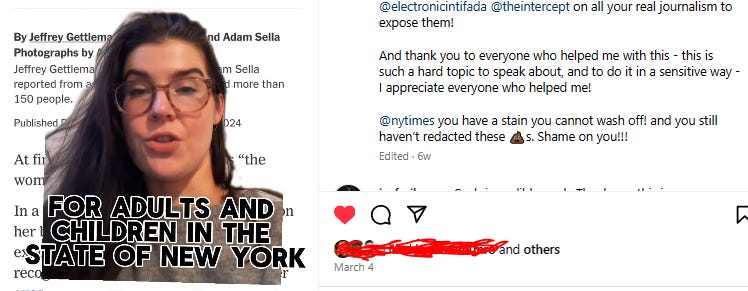
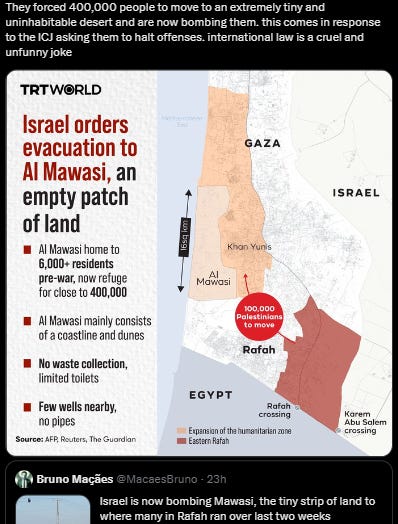
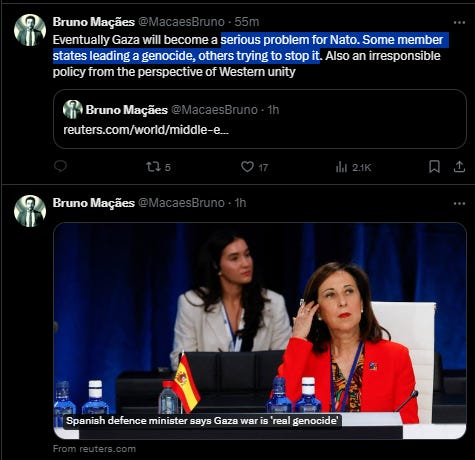
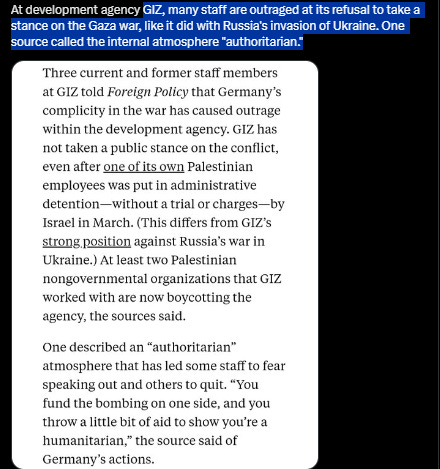
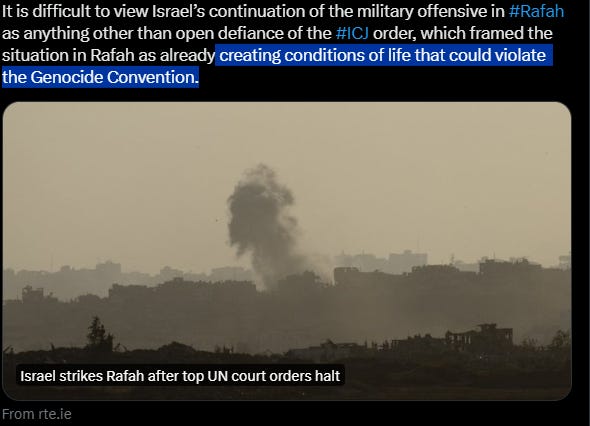
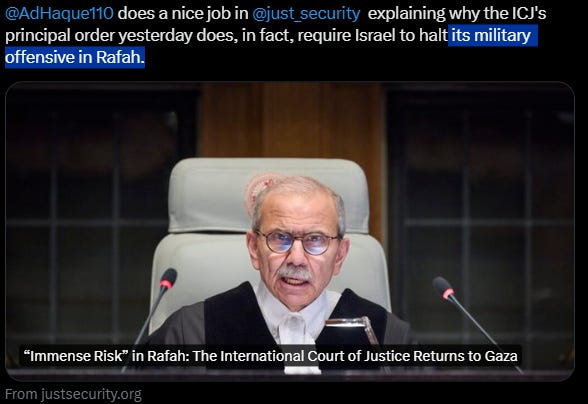
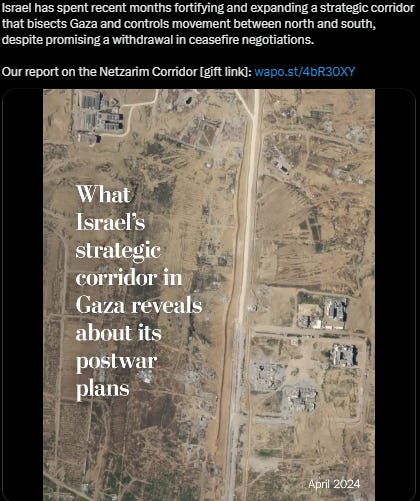
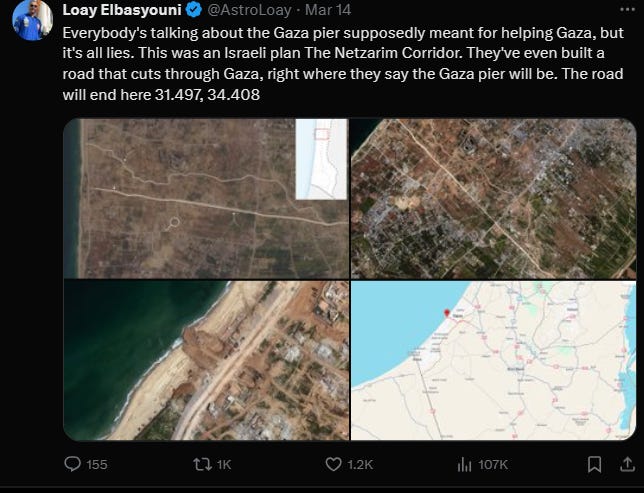
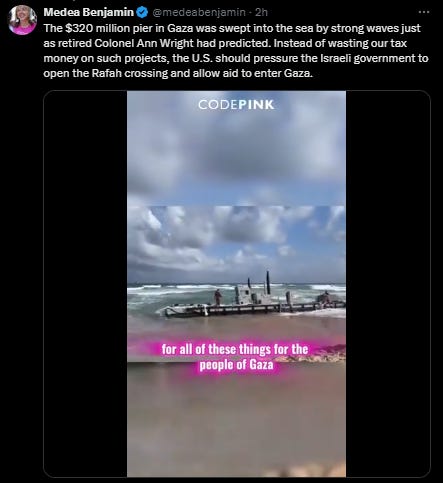
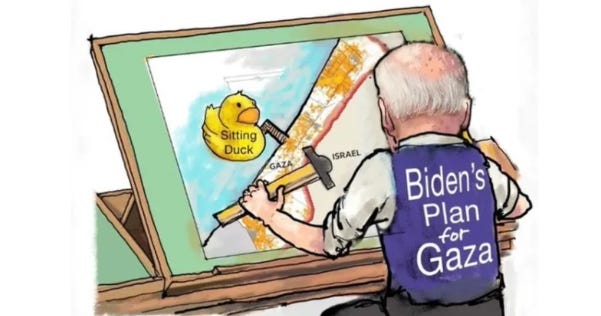

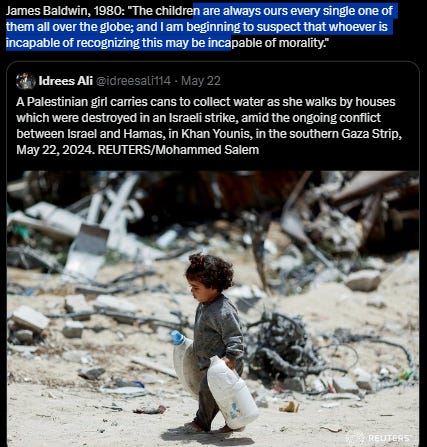
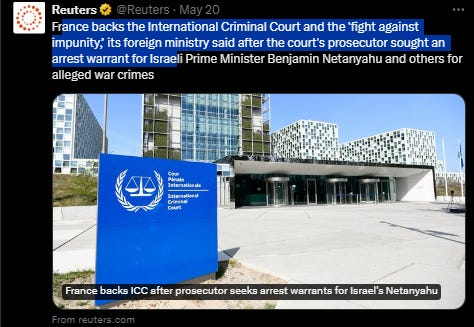
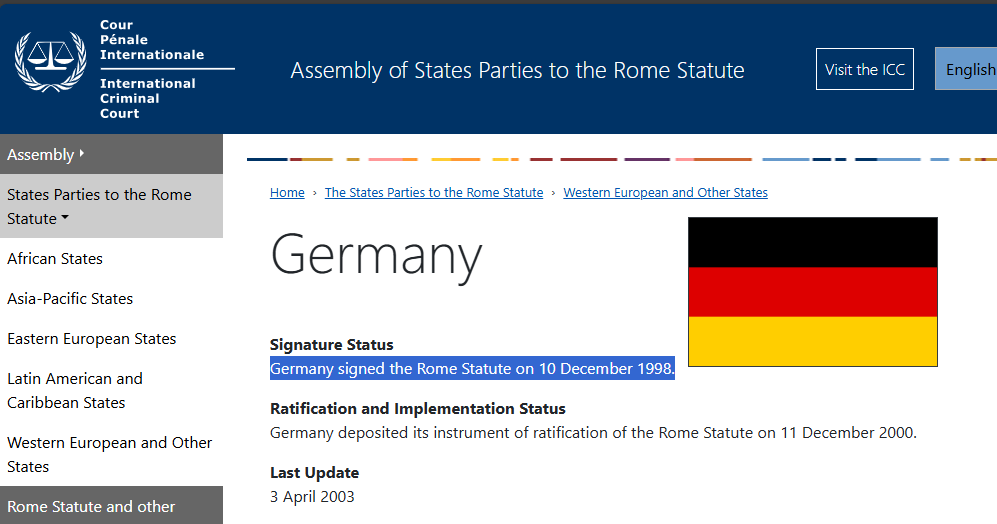
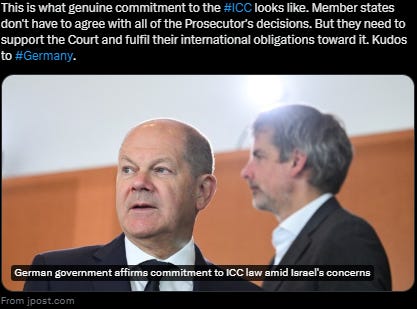

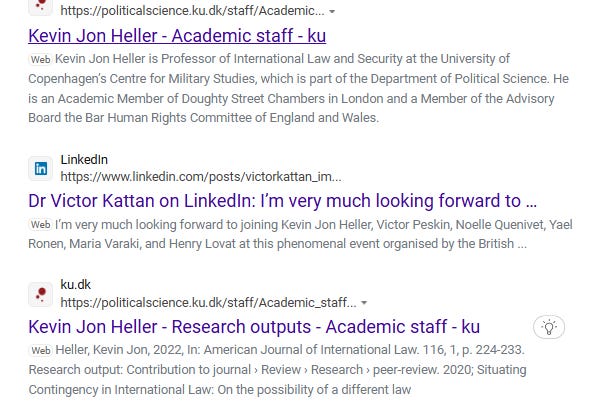


![[Emergency] List Arrest Every University; Venmo / CashApp 211 [TWO HUNDRED ELEVEN] Encampments Solidarity in US Soil, Also Pro Bono Lawyer](https://substackcdn.com/image/fetch/w_1300,h_650,c_fill,f_auto,q_auto:good,fl_progressive:steep,g_auto/https%3A%2F%2Fsubstack-post-media.s3.amazonaws.com%2Fpublic%2Fimages%2F07ad86fd-75ff-494a-871f-d1008c584323_928x571.png)

